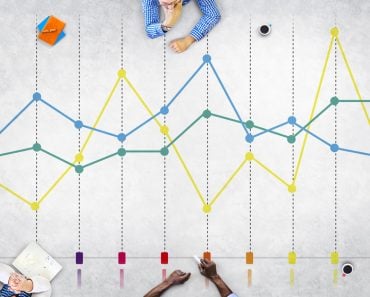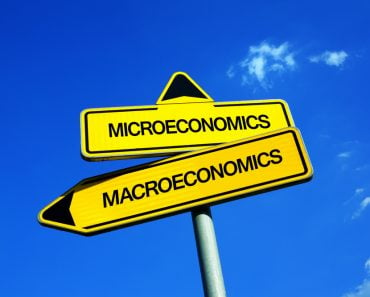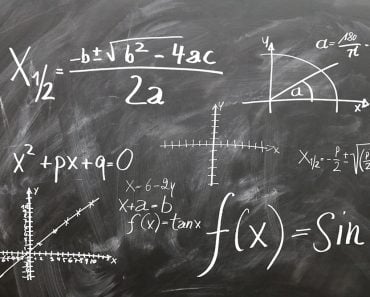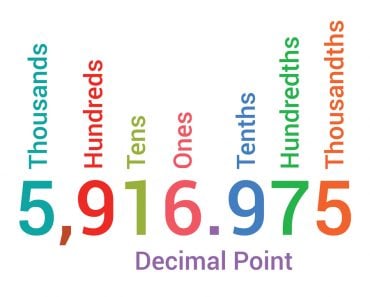Table of Contents (click to expand)
An independent variable is one of the two types of variables used in a scientific experiment. The independent variable is the variable that can be controlled and changed; the dependent variable is directly affected by the change in the independent variable.
If you think back to the last science class you took, you probably remember a lot of discussion surrounding variables. In fact, this concept is widespread and applied to many different areas of life, but it has the same fundamental meaning. The weather can be “variable”, meaning that it changes quite often, and the same can be said of personalities and moods. By introducing a new “variable” into a situation, such as inviting your new in-laws over for Christmas, you are expecting the outcome to be different than if they were not in attendance.
Although you might not think of these small, daily occurrences as “experiments”, every decision in life can be compared to a scientific study! However, what you may not remember from your science class is the difference between certain variable types. This article will dive into these specifics a bit deeper, particularly in terms of independent variables.
Recommended Video for you:
The History Of Variables
In the human history of logic and reasoning, there have been many critical turning points, but one of the most fundamental concepts—the variable—has its origins in 7th century India, specifically with a mathematician named Brahmagupta. Not only was he the first mathematician to outline rules for the use of “zero”, but also developed the first rudimentary system to analyze unknowns. When designing and expressing algebraic equations, he used different colored patches to label different known and unknown quantities.
Nearly 1,000 years later, in the west, a similar concept of labeling unknown and known quantities with letters was introduced. In his equations, he utilized consonants for known quantities, and vowels for unknown quantities. Less than a century later, Rene Descartes instead chose to use a, b and c for known quantities, and x, y and z for unknown quantities. To this day, this is the standard system that remains in use across most of the sciences, including mathematics.
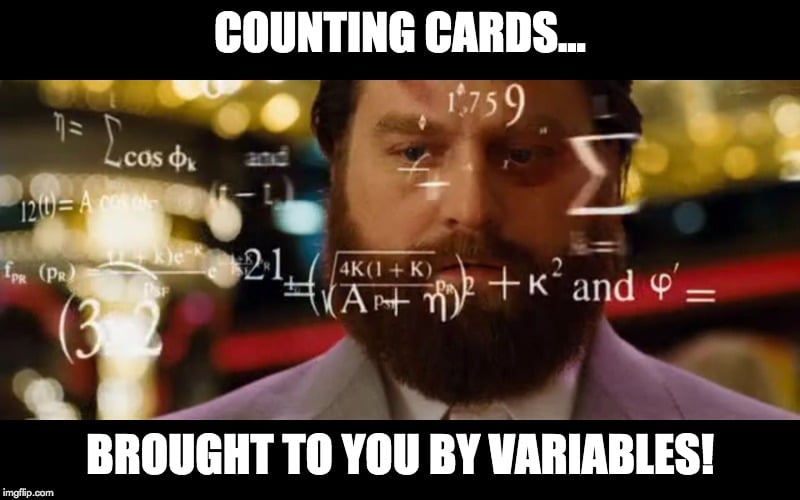
Two hundred years later, the idea of infinitesimal calculus was developed, which led to the development of a “function”, in which an infinitesimal variation of a variable quantity causes a corresponding variation in another quantity, making the latter of a function of the former. Without going beyond the scope of this article, this deeper definition of a variable has led to incredible modern advancements in engineering, economics and mathematics, among many others.
Variables have proven to be invaluable for the calculation and theorization of complex ideas and computations across a multitude of fields. but in the realm of scientific experiments, variables take on a slightly different (and simpler) role.
Independent Variables
As mentioned above, independent and dependent variables are the two key components of an experiment. Quite simply, the independent variable is the state, condition or experimental element that is controlled and manipulated by the experimenter. The dependent variable is what an experimenter is attempting to test, learn about or measure, and will be “dependent” on the independent variable.
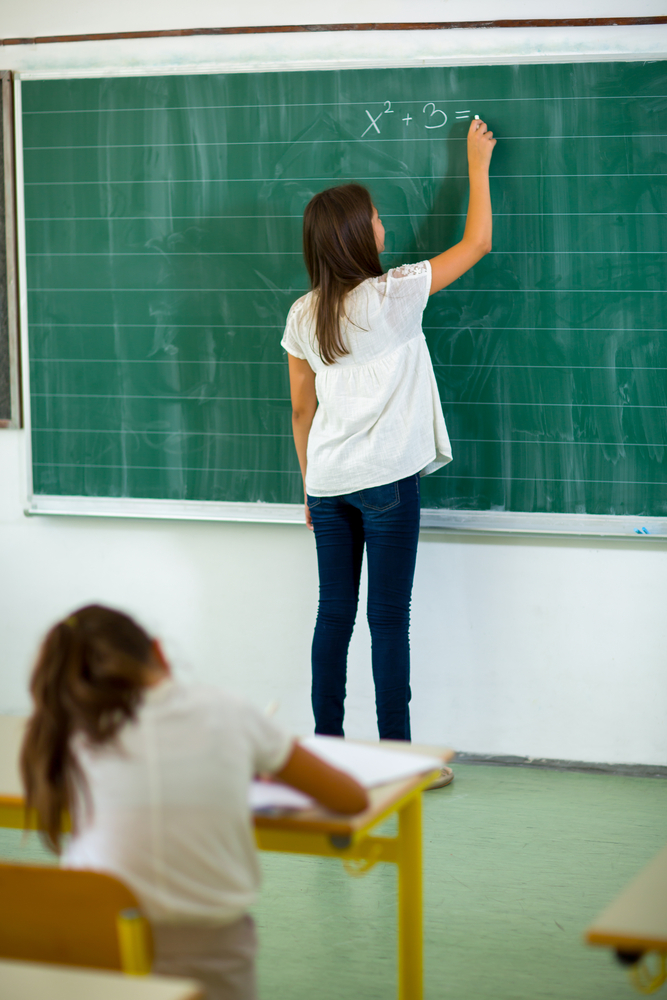
This is similar to the mathematical concept of variables, in that an independent variable is a known quantity, and a dependent variable is an unknown quantity. In most scientific experiments, there should only be a single independent variable, as you are attempting to measure the change of other variables in relation to the controlled manipulation of the independent variable. If you change two variables, for example, then it becomes difficult, if not impossible, to determine the exact cause of the variation in the dependent variable.
Understanding Independent Variable With Example
To make this even easier to understand, let’s take a look at an example. Imagine that you’re conducting an experiment in which you want to see what is the best watering pattern for a particular type of plant. You line up three identical styrofoam cups full of the same quantity, quality and density of soil. You then plant three seeds of the same plant variety in each cup. The first cup receives 2 ounces of water once a day, the second cup receives 2 ounces of water every other day, and the third cup receives 2 ounces of water every third day.
In this example, there is only one independent variable—the watering regularity. All of the other potential variables are kept consistent and unchanged, such as the type of plant, the quality of the soil and even the amount of water administered each day. These represent the third type of variable present in any experiment—the controlled variables. If any additional controlled variables were changing, it would be impossible to definitively determine the connection between the independent and dependent variables.
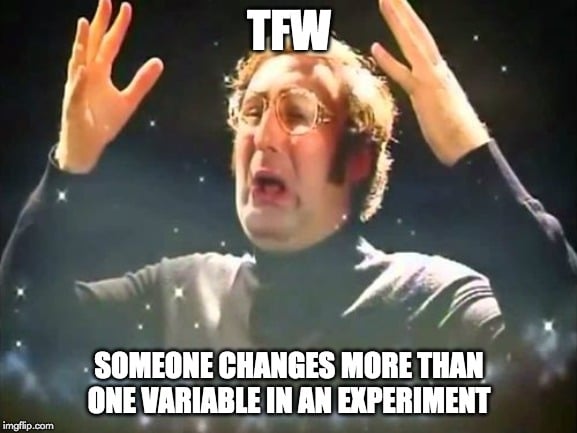
After 4-6 weeks of the experiment, one could measure the amount of growth in each newly sprouted plant; these measurements are the dependent variables, as they are dependent on the amount of water each plant receives (the independent variable).
A Final Word
This may seem like a simple concept, but it underpins all scientific inquiry, so it’s very important to understand. It is also applicable in your own life every single day. For example, if you’re a scientifically minded person and are unhappy with the direction your life is going, try to change one thing in a concentrated way (i.e., getting a new job, finding/leaving a partner, changing a daily habit etc.). This is your independent variable. After a set amount of time (days, weeks, months), take stock of what has changed since making the change. What you identify as having changed (either good or bad) is your dependent variable!
Changing everything at the exact same time, such as simultaneously leaving a job, ending a relationship and moving to a new city, will make it difficult (if not impossible) to identify which of those changes had the most notable and measurable effect. Obviously, life is unpredictable and some variables cannot be controlled, but thinking about variables and causation in your daily decisions can help you take a more logical and informed path!
References (click to expand)
- What are Variables? - Science Buddies.
- Rosenthal, A. (1951, February). The History of Calculus. The American Mathematical Monthly. Informa UK Limited.
- Tang, X., Coffey, J. E., Elby, A., & Levin, D. M. (2009, October 7). The scientific method and scientific inquiry: Tensions in teaching and learning. Science Education. Wiley.


